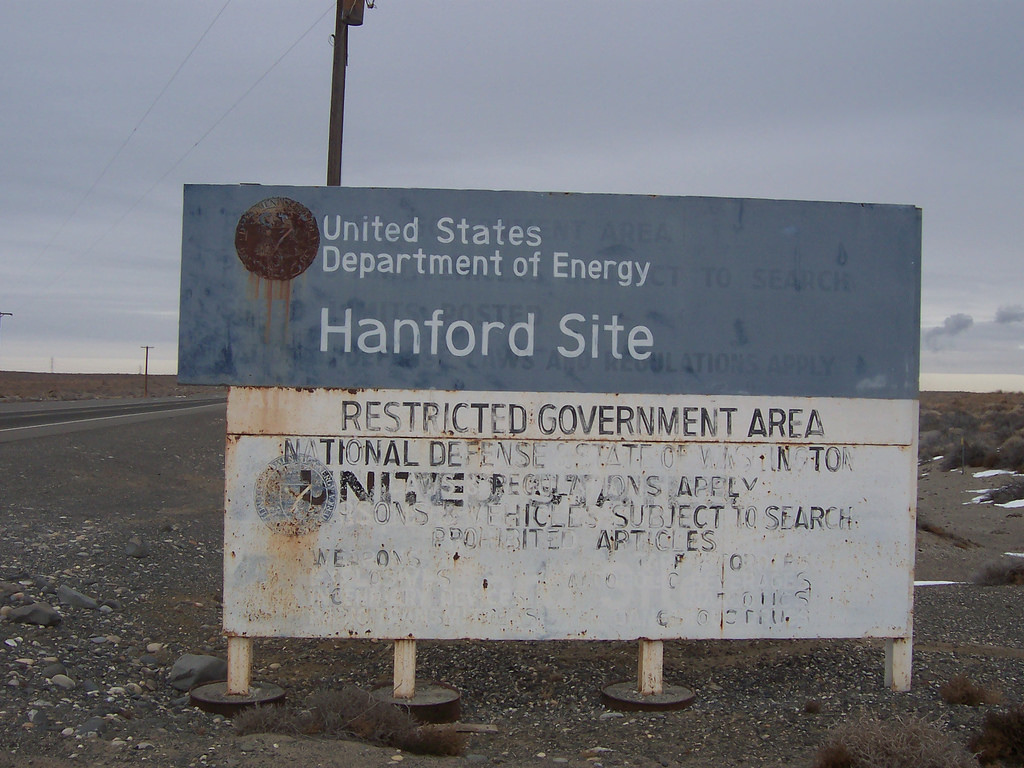Stopping Government Poisoning of Workers at the Hanford Nuclear Site
Image via Tobin on Flickr
By Richard Webster
Staff Attorney, Environmental Enforcement Project
All too often, industry tries to play a divide and conquer strategy by accusing environmental organizations of putting green interests ahead of those of workers. However, at Public Justice, we strongly believe that worker interests and environmental interests are largely synonymous. When toxic chemicals are released, it is usually workers who are in closest proximity to the poisons, and therefore get the highest exposures. Minimizing the release of toxins is both good for workers and good for the environment, and our new lawsuit seeks to help both.
At the Hanford Nuclear Site in south-central Washington State, hundreds of employees work in and around the Hanford Tank Farms where the Department of Energy stores over 56 million gallons of radioactive and chemical waste from decades of plutonium production for nuclear weapons. These workers routinely encounter potentially toxic vapors with inadequate or non-existent protective equipment. Hundreds of workers in tank farms – where liquid radioactive waste is stored pending final disposal – have received treatment for exposure to toxic fumes from these “farms,” including 50 within just the last year. This suit, filed on behalf of Hanford Challenge and UA Local 598, seeks to compel the U.S. government to implement the safety recommendations if its own experts and to add the safety measures to the tanks to protect workers against the vapors emanating from them.
In 1943, under the auspices of the Manhattan Project, the U.S. Government created the first full-scale plutonium production reactor at the Hanford Nuclear Site. Plutonium from the site was used in the first nuclear bomb test as well as in the bomb dropped on Nagasaki. Nine reactors operated at that site until the last was closed in 1987. Following the closure, the Department of Energy began a clean-up effort that continues to this day and has cost some $113.6 billion.
Several Hanford workers have suffered permanent long-term disabilities stemming from brain damage, loss of lung capacity, damage to the nervous system, and cancer. The harm resulting from toxic vapor leaks is not a subject of dispute. The lawsuit follows the publication of an expert report commissioned by Hanford after numerous workers were sent for medical evaluation and treatment following toxic vapor exposures at the site. The expert report, released in late 2014, determined Hanford’s program to protect workers is inadequate. Findings and recommendations from this report and numerous past reports on Hanford worker exposure to toxic tank waste vapors have yet to be implemented. We want our action today to change that.
We are working with Smith & Lowney, PLLC in Seattle, Wash. to represent Hanford Challenge and UA Local 598 in a legal action to ensure that their members, and all workers at the Hanford nuclear site, are protected from exposure to toxic vapors released from Hanford’s high-level nuclear waste tanks once and for all. The complaint filed in federal court today named DOE and Hanford contractor Washington River Protection Solutions as defendants. The lawsuit announced today seeks specific actions to protect workers, including (1) immediately institute protective measures to prevent toxic vapor exposures, (2) implement systemic changes to Hanford’s chemical protection program, and (3) conduct comprehensive medical monitoring for past and present Hanford tank farm workers.
Happily, we are not alone. The lawsuit was filed today alongside a similar action from the Washington State Attorney General. Both actions were filed under provisions of the federal environmental law governing hazardous waste called the Resource Conservation and Recovery Act which applies to the radioactive and chemical mixed waste stored and treated at Hanford.
Will the U.S. Government finally give workers the protections its own experts say are necessary or will it waste time and money on litigation? Either way, we are confident that justice will prevail.


